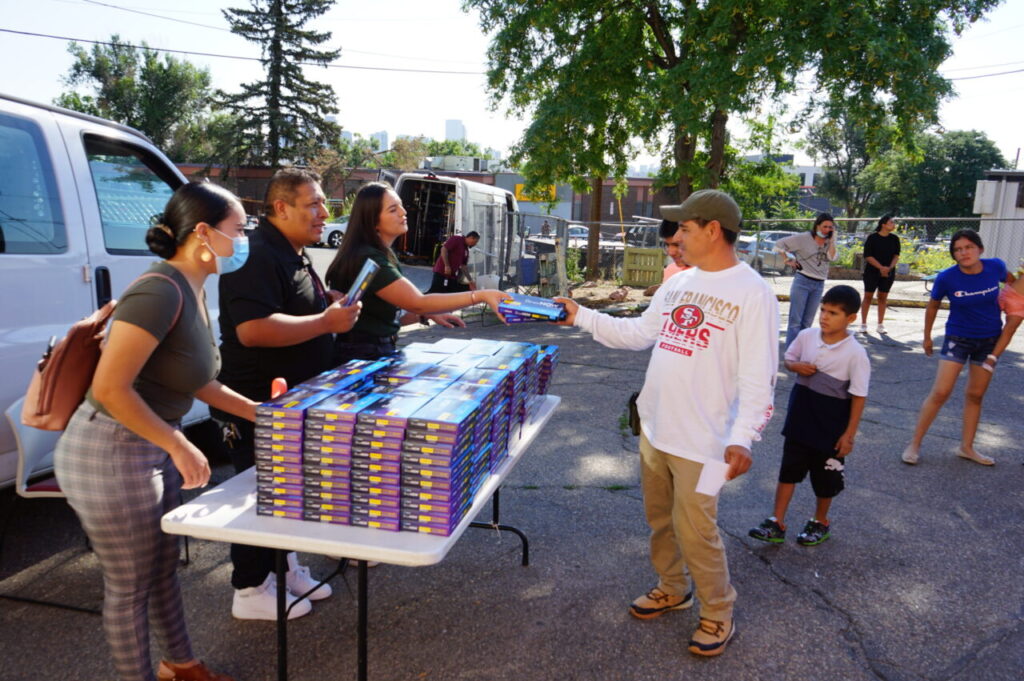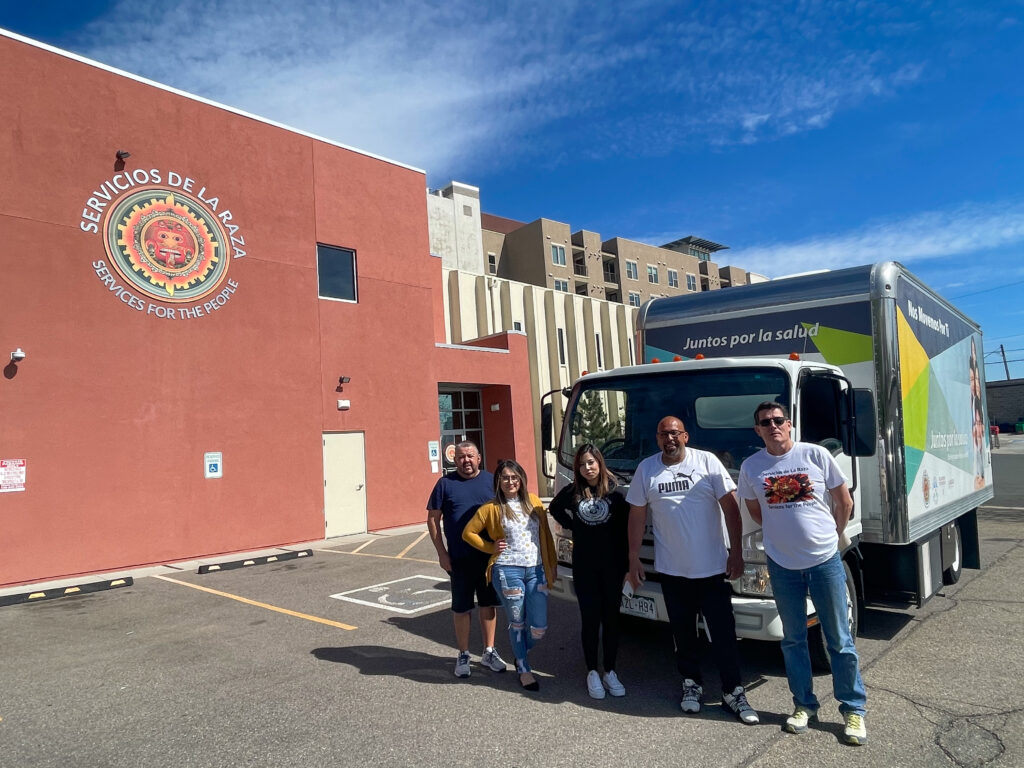By: Ernest Gurulé
Do not let the name fool you. To the untrained eye, the uninformed, the bound and determined monolinguists, the name might seem uninviting and simply for Latinos, or purely mysterious. But to thousands of others, Servicios de la Raza is a lifeline that has served Denver for a half a century.

Servicios de la Raza, literally translated as ‘services for the people,’ began as an obscure way station for those seeking help with mental health concerns. Its mission today still includes mental health but has expanded to include an entire panoply of public health issues.
“Our first mission was to provide an advocate for the Spanish speaking community,” said Servicios President and CEO Rudy Gonzales. In 1972, there weren’t a lot of places in Denver where Spanish speaking families could go with a high degree of confidence that they would see a health care person who could fully understand and appreciate their needs. “We were responsive to it,” said Gonzales.
The Gonzales family, the patriarch of which, Rudolfo ‘Corky’ Gonzales, one of Denver’s most iconic citizens, has long been connected to the city’s Latino community. It was the elder Gonzales who saw a need to address the healthcare void that left so many Latinos with inadequate healthcare options.
Today Servicios provides Denver’s multi-ethnic com- munity with services that extend far beyond mental health. On any given day, those walking through its doors can be anyone seeking help or information vital to quality of life. It could be a recently released man or woman needing help reentering a world that they’ve been apart from; a family in need of basic sustenance—food and clothing; someone with questions about HIV or STI. Servicios provides an option for many lacking an understanding of a healthcare landscape that is often not easily navigable.
While the Gonzales patriarch has a well-documented history that extends far beyond Denver and Colorado, his son and the man who now runs Servicios is quick to give his late mother, Geraldine, an equal amount of credit. “Dad instilled discipline and duty to serve others,” he said. But it was his mother’s “compassion and love” that became the foundation for the work he and Servicios do today. “Treat everybody with dignity and respect,” was his mother’s basic lesson. Together they also imparted a “fighting spirit.”
During the pandemic Servicios provided thousands of COVID-19 vaccinations. It reconfigured its parking lot at its 3131 W. 14th Ave. in Denver into an al fresco waiting room. Instead of cars filling the lined parking spots, there were chairs. Servicios employees and vetted volunteers helped take essential health information as visitors waited on their shots. It also provided vaccinations at its 200 S. Sheridan facility and has a mobile unit for its health care offerings elsewhere.
“We’re going to be in Adams County every Thursday,” Gonzales said. Earlier this month, Servicios offered vaccina- tions in Grand Junction. For those still seeking COVID shots, Servicios is still offering them each week. For information on availability call 303.458.5851.
What has been a boon for Servicios’ effort in expanding its mission is the addition of a fully equipped mobile health unit. “We have testing equipment for A1C and cholesterol testing,” said Gonzales. A1C is a test measuring blood sugar and routinely used to determine an individual’s risk of dia- betes. At each of the mobile unit’s stops, he said, “we have 30-50 screenings a day.” The mobile clinic, he said, will also be providing mammograms later this year.
While Servicios provides as many services as it can, it does not delve into the more pervasive health issues plagu- ing Latinos. But Dr. Ricardo Gonzalez Fisher, a public health expert but not licensed to practice medicine in the U.S., who works with Servicios, regularly counsels individuals who may be displaying symptoms indicating heart disease and others leading causes of morbidity.
“What we do is screen,” said Gonzalez, no relation to the Servicios CEO. “We try and give education, we talk about their (test) results, what are their risks and try to talk about a plan on reducing their risk…we also try to be culturally responsive.” Individuals, he said, are also referred to agencies that are better suited to deal with the most seri- ous health concerns and far more able to treat uninsured patients. Gonzalez said those who fall into this group is alarming. “Seventy-eight percent of those we screen are uninsured.”

Despite being unable to address some of the more serious health issues in the Latino community, those visiting Servicios with indications of any of these health concerns, are provided information and, when available, literature to better understand their concerns.
The leading cause of death among Latino males continues to be heart disease with cancer, stroke, diabetes and liver disease all ranking in the top ten. According to the Centers for Disease Control, for Latino males, ages 45-64, cancer is the leading cause of death. It is followed closely by heart disease. Cancer and heart disease are also the leading causes of death for Latino males in the 65-84 age category.
Among Hispanic females, the leading causes of death are cancer, heart disease, stroke and Alzheimer’s disease. In the age group 45-64, nearly 37 percent of all deaths among Hispanic women is cancer. The CDC says cancer has a nearly three times higher morbidity rate than heart disease.
For more information on Servicios de la Raza and the services it offers, visit its website: serviciosdelaraza.org




